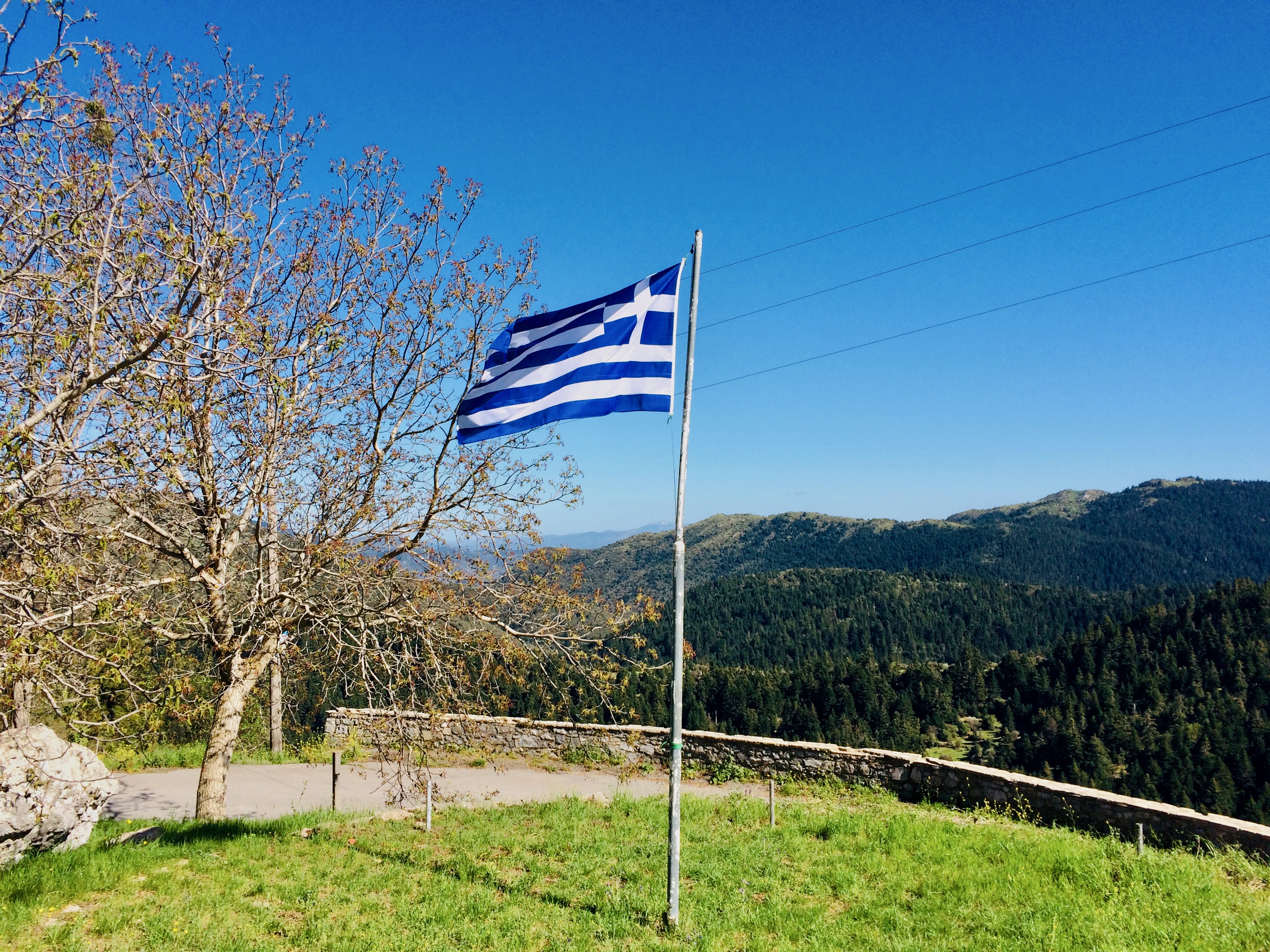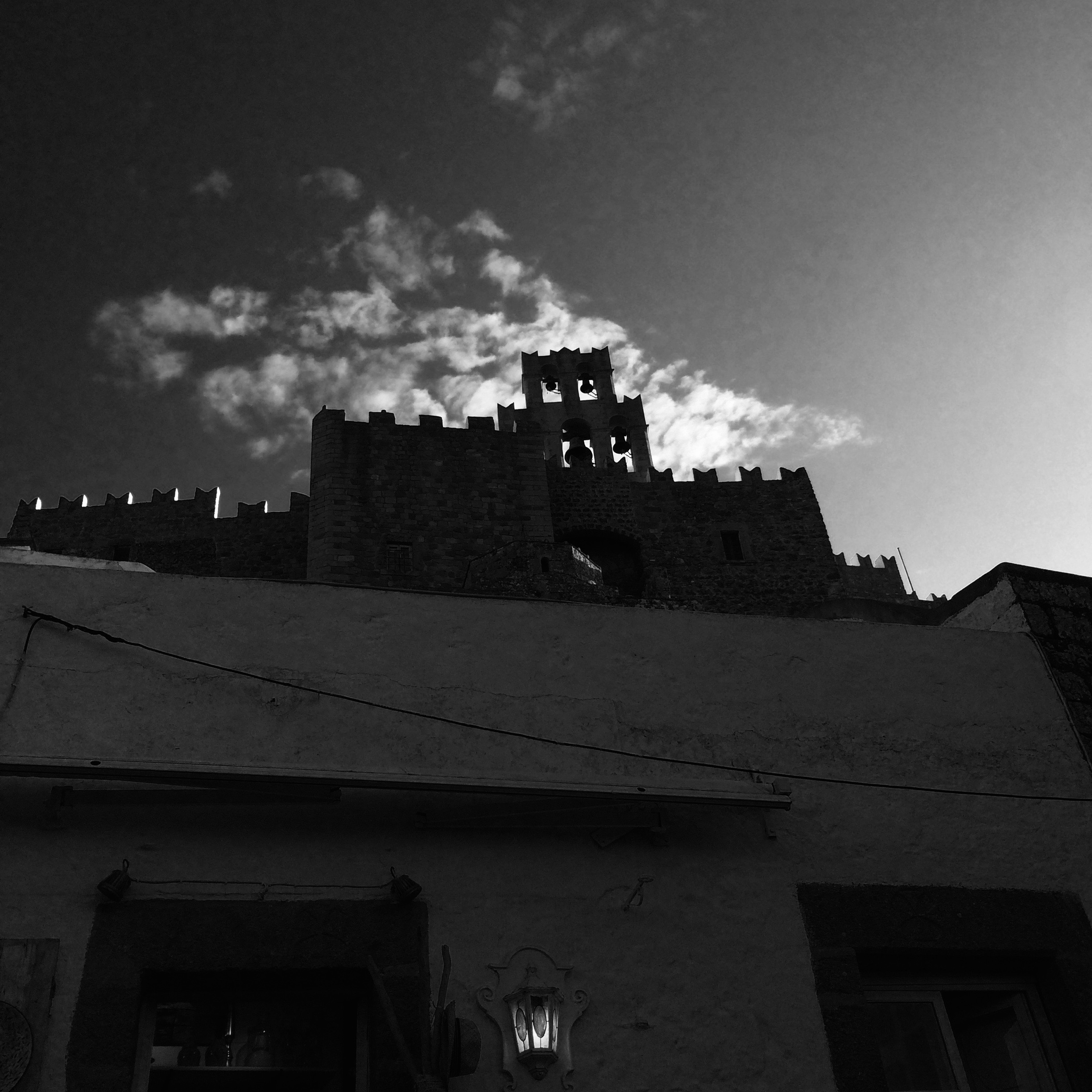
I was barely 15, restless and so in love with music. Every waking hour was about music: listening to it, playing it, singing it, breathing it. A group of friends from school had decided to go out on the town, to one of those Athens nightclubs. Rebetika and laika were all the rage and we had heard about this great “kompania” (multi-member group) playing somewhere in the city centre. Those first outings are so ingrained in my memory; every sound and sight sent tingling sensations to the very core of my teenage existence. I was ready to take the world by storm.
We took our seats at a giant table reserved by one of our schoolmates whose brother was in the band. Some 20 very young people, we tried to act cool and adult, ordering whiskey and wine and lighting each other’s cigarettes feigning maturity. The lights went out, the instruments – a bouzouki, toubeleki (percussion), guitar – were doing their last awkward fine-tuning… and there she was… her voice was so outlandish, so ethereal, so out there that I froze in my seat and have remained enthralled ever since. I had heard rumours about this singer with the Opisthodromiki Kompania, their latest find who’d been tagged the “new Marika Ninou”. How could that be, I thought. Ninou was one of the greatest (and most intense) voices of the rebetiko. Either this new girl could boast of a fine vocal gift or these people had some nerve.
And yes, it was a gift like no other: a captivating shrill with a warm almost tender undertone revealing vulnerability and able to carry the deep verse that she was just too young to have the life experience to back. Ladies and gentlemen, this was Eleftheria Arvanitaki some 25 years ago. She has since taken contemporary Greek music forward and stood by her art with dedication, diligence and passion, remaining modest and true to her self.
It was only a matter of time before Eleftheria would set on a solo career with the greatest Greek composers and lyricists eager to create works exclusively for her uniquely high-pitched voice. But as is the case with crystal clear vocals, they can be both tiring and tedious if the possessor fails to touch a chord. In Eleftheria’s case, it was her interpretation, which the legendary Domna Samiou described as “singing from the heart” that won her a spot in out hearts. For her fans she is fairy-like, fragile, beautiful and breathtaking. And indeed, with her waif-like silhouette, dressed mostly in white, Eleftheria possesses not only a vocal dynamic but the charisma to touch.
As for her repertoire, it is as diverse as any artist could only dream of in his or her career. A great fan, The Greek Vibe introduces you to but a few of the musical milestones in Eleftheria Arvanitaki’s brilliant career.
♪ Here in the lyrical “Zoi Klemmeni” (A Stolen Life) by Stamatis Spanoudakis.
♪ The meloncholy “Meno Ektos” by Ara Dinkjian and the verse of Lina Nikolakopoulou.
♪ The compelling rendering of “To Parapono” (The Grievance) to the verse of one of Greece’s greatest poets, the Nobel laureate Odysseus Elytis and the music of then newcomer Dimitris Papadimitriou.
♪ One of my favourites, “E Xenitia” (Τhe longing during life away from the homeland), a re-arranged traditional Armenian song by Ara Dinkjian to the lyrics of Nikolakopoulou, where the aural whirlwind of desperation and desire unite in her voice.
♪ The potent “Ti Leipei” (What’s Missing”) by former Fatme frontman Nikos Portokaloglou for the soundtrack of Greek film Brazilero.
♪ Here in a collaboration with the “Barefoot Diva”, Cesaria Evora, in a stirring version of “Sodade” (loosely translating into ‘a longing’).
♪ Her latest http://www.youtube.com/watch?v=bjIJkdgMzJk “Mi Meineis, Mi Fygeis” (Don’t Stay, Don’t Go) to the music of Nikos Antypas (drummer in Greek rock band Socrates), lyrics by Nikos Moraitis and an electric arrangement by Soumka.
And finally, “Dynata Dynata” (All is Possible), here during the unforgettable closing ceremony of the Athens 2004 Olympics, in one of the ultimate moments of Greek history and music, to the verse of Lina Nikolakopoulou and the music of Ara Dinkjian.
It is not by chance that her name, Eleftheria, translates to “Freedom”. With a voice that can travel and take us with on so many aural journeys, it’s no wonder. Our very own Eleftheria (Arvanitaki), born in Piraeus, will be performing at New York’s Carnegie Hall on February 1.
When a Greek travels that far, we can only be proud. Ending with one of my (many) favourites.


